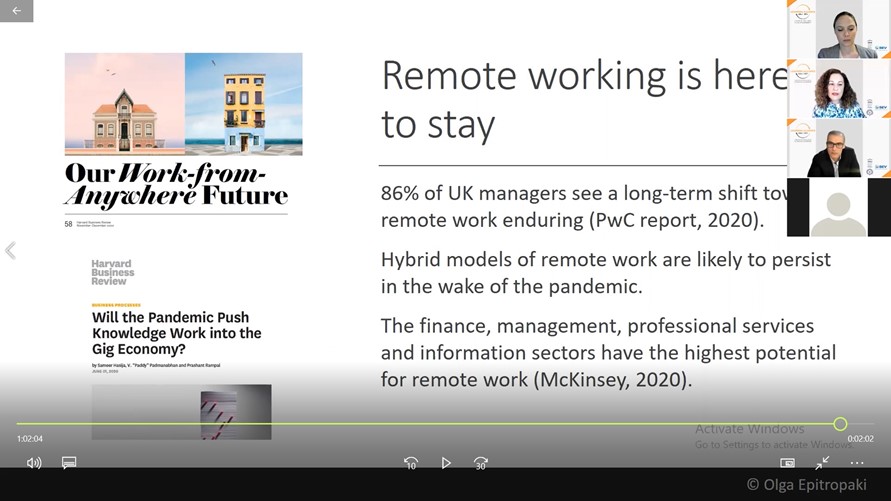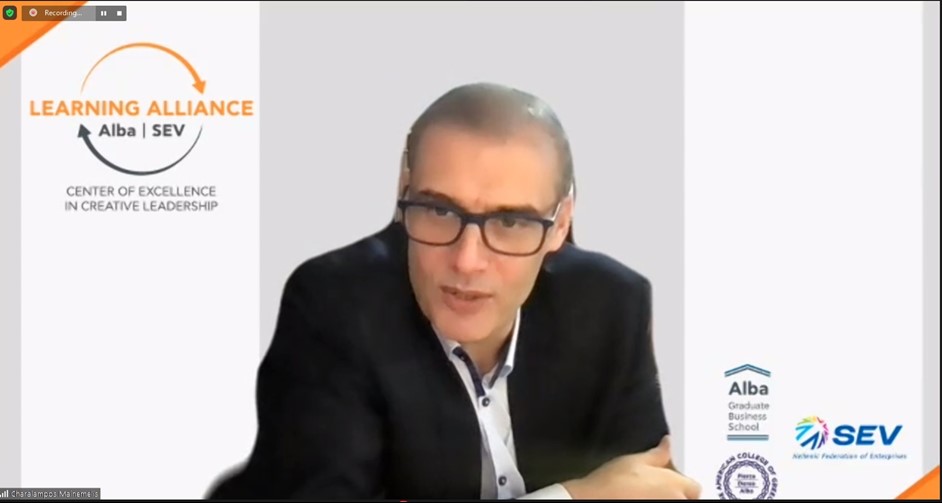Proximal leadership in a physically distant world

The concept of "leadership distance" as well as possible ways for leaders to retain proximity in physically distant conditions were at the heart of the webinar ‘Distant but close’: Proximal leadership in a physically distant world by Dr. Olga Epitropaki, Professor of Management, Director of Research (Management & Marketing), Durham University Business School.
The event organized by the SEV Center of Excellence in Creative Leadership attracted mainly senior and top executives from Greek companies, who had the opportunity to pose their questions and exchange views on current issues related to the speech.
During the online event, Dr. Epitropaki talked about how the recent pandemic has posed a series of challenges for organizational leaders with the sudden shift to remote being an important one. As the ‘work-from-home’ trend is likely to continue post COVID-19, managers and employees need to be able to navigate the intricacies of a digital workplace, establish new work routines and sustain high levels of performance.
She also discussed how leaders can remain close to their teams when they can only rely on online channels, how they can they inspire and motivate their people from afar and help them manage stress and remain focused to their tasks

“The need to comprehend the new workplace facts created by the physical distance and the importance of anthropocentric leadership models in a digital environment was clearly evident during the discussion we had with participants” said Dr. Epitropaki and she concluded “I warmly thank them all for their active participation as well as the SEV Center of Excellence in Creative Leadership for the invitation ".
Dr. Babis Mainemelis, Director of the SEV Center of Excellence in Creative Leadership , mentioned that: “Although teleworking has been around since the 1970s, the Covid-19 pandemic has forced businesses and employees alike to adopt it on an unprecedented degree. Equally important is the fact that while the adaptation of work practices to technological revolutions and innovations is usually long and slow, the adaptation to digital teleworking and teleworking conditions in the last year has been fierce and abrupt. Professor Olga Epitropaki's speech identified the multidimensional challenges that companies and employees face today in this adaptation effort, as well as the extremely important role proximal leadership plays in both the smooth and effective operation of businesses and the psychological stability of employees in a pandemic. Of particular interest were the experiences and reflections presented during the discussion by the participants regarding the telework practices implemented by their companies and teams in recent months.”






